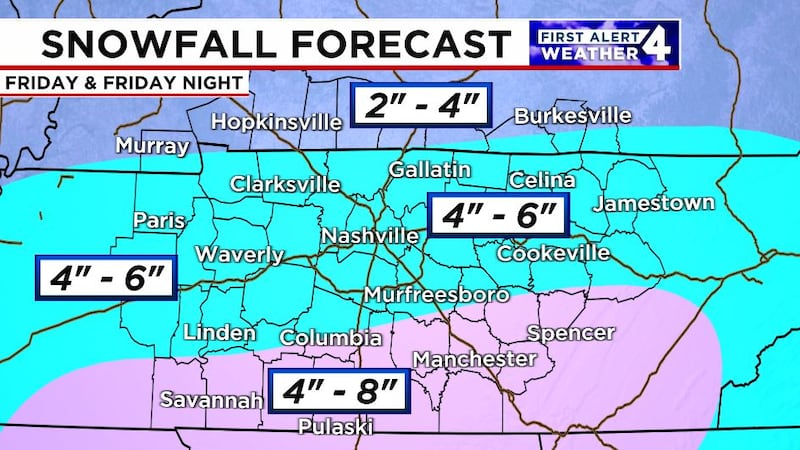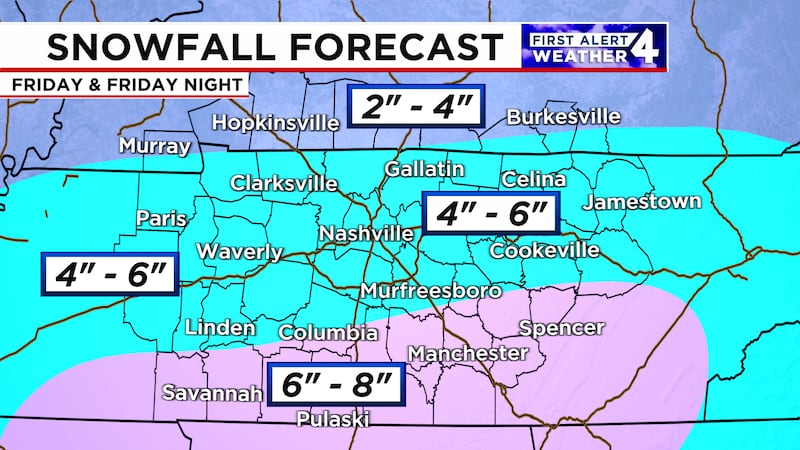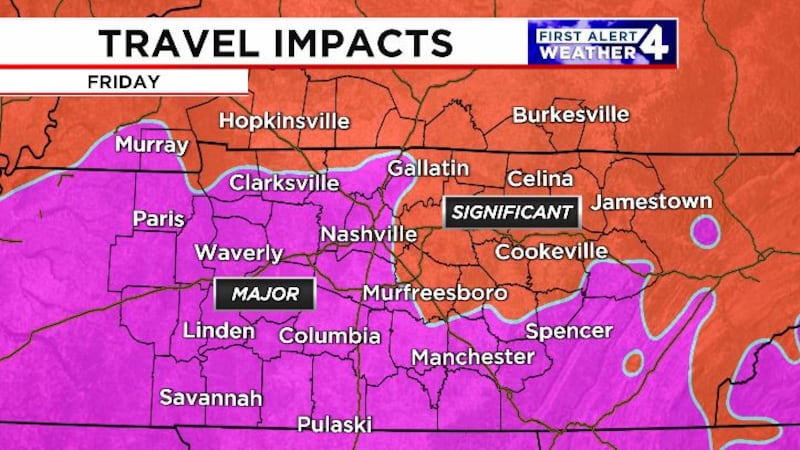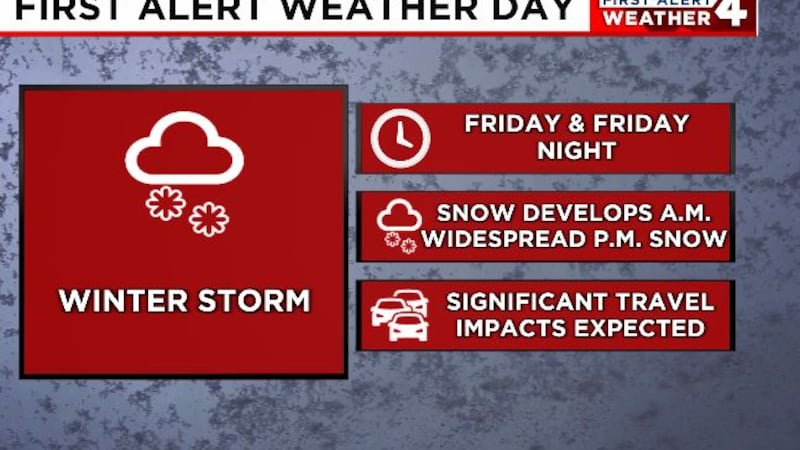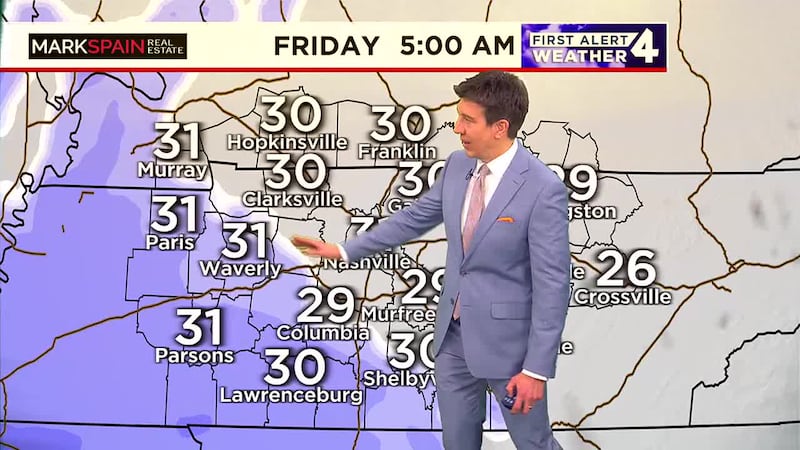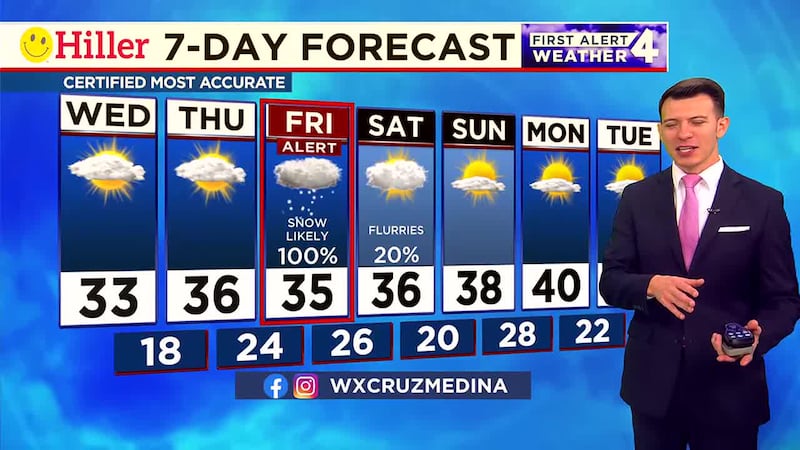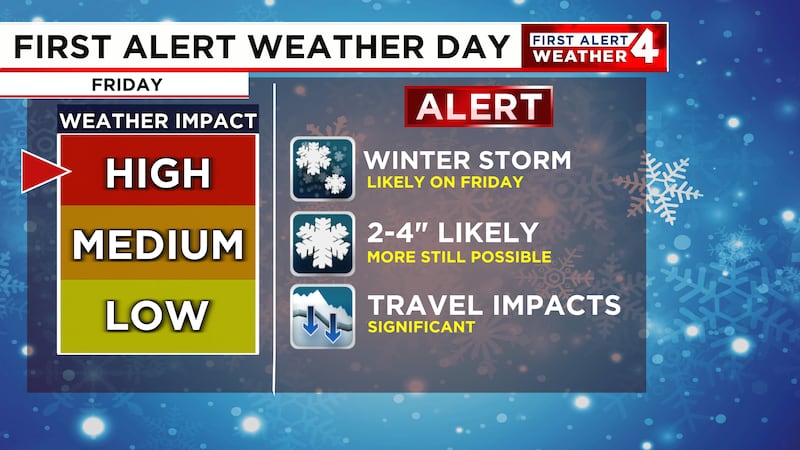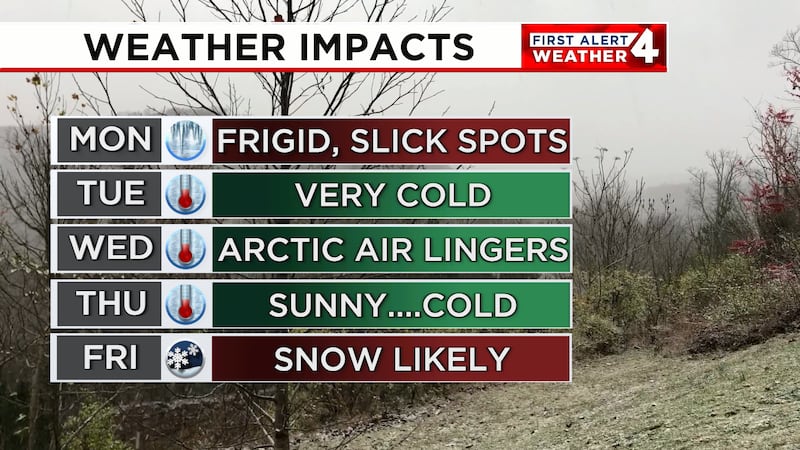How the time change affects your health
Clocks will “fall back” on Sunday, Nov. 3.
NASHVILLE, Tenn. (WSMV) - Darkness arriving earlier in the evening can impact not only your health.
On Sunday, Nov. 3, the fall time change will take place. Sunsets will happen before 5 p.m. each day until Jan. 19 as a result of the time change.
Time changes not only impact how early it gets dark but also your health. This time change disrupts sleep patterns for over 300 million people. Hawaii and Arizona are the only 2 states that don’t observe the time change.
There is scientific evidence that points to an increased risk for adverse health effects such as heart attacks and stroke as a result of the time change. The potential for car crashes also spikes.
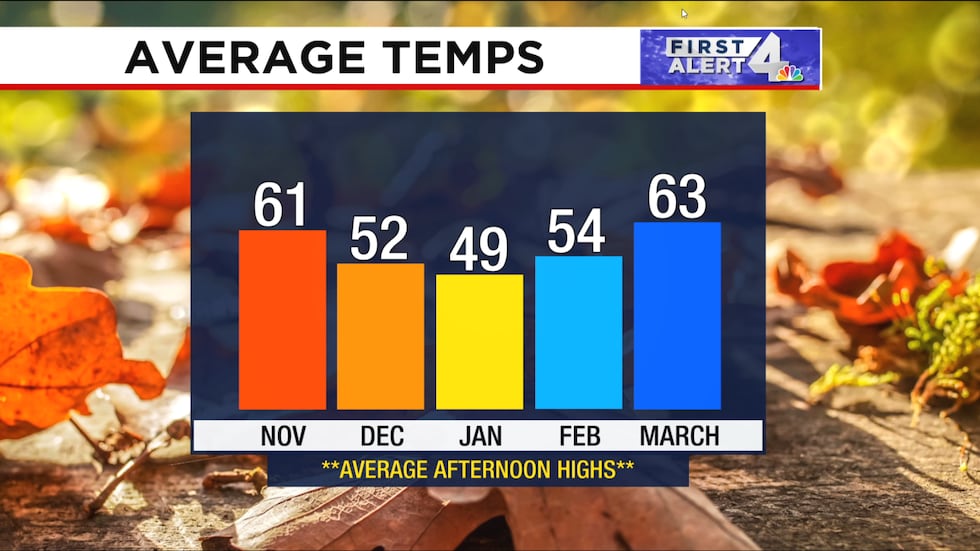
This time of the year, because it gets dark so early, temperatures will turn cooler on average. These cooler-on-average conditions last through the rest of Fall and in Winter. Highs in Nashville will drop from 60s on average in November, to 40s on average in January.
Benjamin Franklin invented the concept of daylight saving in 1784, as a way to save money on candles and lamp oil, but wasn’t implemented in the U.S. until 1981.
Copyright 2024 WSMV. All rights reserved.


